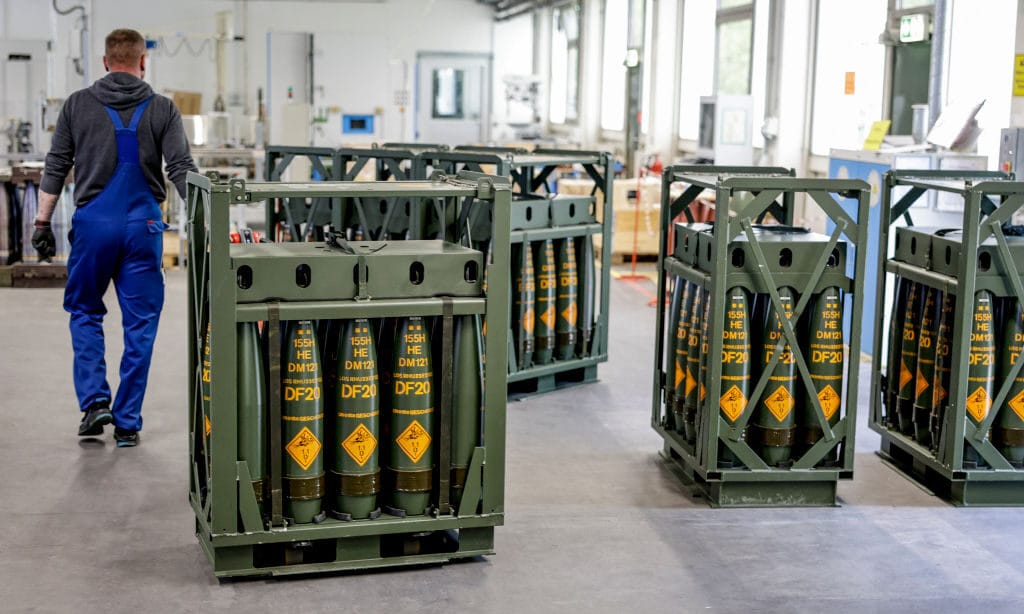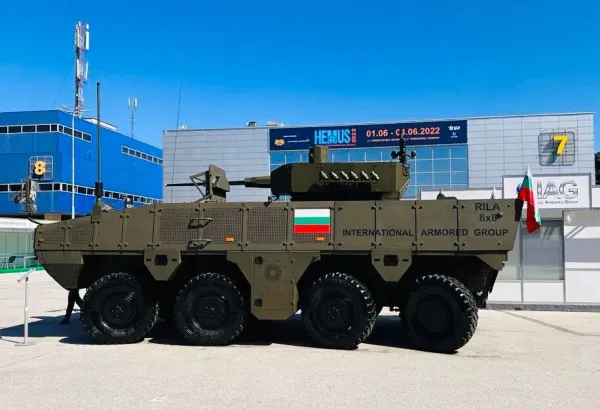Latvia Strikes €275 Million Deal With Rheinmetall to Bolster Ammunition Production
Latvia has signed a €275 million ($321 million) agreement with German defense giant Rheinmetall to establish a state-of-the-art ammunition manufacturing plant on Latvian soil.

RIGA, Latvia — In a decisive step toward strengthening its defense industry and ensuring strategic self-reliance, Latvia has signed a €275 million ($321 million) agreement with German defense giant Rheinmetall to establish a state-of-the-art ammunition manufacturing plant on Latvian soil.
The memorandum of understanding, formalized this week in Hamburg, outlines plans for a facility capable of producing tens of thousands of 155mm artillery shells annually, a critical caliber for NATO-standard systems.
The project will encompass the design, construction, and operation of a modern production line, integrating shell forging, explosive filling, testing, and quality assurance. Beyond its industrial footprint, the venture aims to develop a local supply chain and skilled workforce, anchoring Latvia’s position within Europe’s evolving defense ecosystem.
Construction is slated to begin in spring 2026, with the first production runs expected in 2027.
The facility will operate under a joint venture between Rheinmetall Waffe Munition (holding 51 percent) and Latvia’s State Defense Corporation (49 percent), reflecting a partnership model that balances foreign expertise with national control.
A Push for Sovereign Defense Capacity
The move underscores Latvia’s broader strategy to strengthen domestic defense capabilities and mitigate vulnerabilities exposed by Russia’s full-scale invasion of Ukraine. With heightened demand for artillery ammunition across Europe, Riga’s investment signals both an economic and strategic commitment.
“Investing in our defense industry is investing in the safety and future of our people,” said Prime Minister Evika Siliņa, who hailed the agreement as a milestone in building sovereign production capacity. “Signing this deal is a clear step toward strengthening Latvia’s security and developing our defense industry.”
For Rheinmetall, the deal adds to its expanding network of European production hubs. CEO Armin Papperger emphasized the company’s mission to support national clients in achieving supply independence. “This partnership ensures Latvia can sustain its own defense needs while contributing to regional resilience,” he said.
Regional Momentum
Latvia’s initiative aligns with a broader Baltic trend toward domestic arms manufacturing. Neighboring Lithuania signed a $190 million contract with Rheinmetall in 2024 to construct a similar ammunition facility in Baisogala, while Estonia has signaled interest in expanding its defense industrial base.
Once operational, Latvia’s plant is expected to employ at least 150 workers and draw on local suppliers, embedding the project within the national economy. Officials see the facility not only as a means of securing ammunition stocks but also as a platform for industrial innovation and regional cooperation.
By coupling foreign expertise with national oversight, Latvia hopes to transform itself from a defense consumer into a reliable contributor to Europe’s collective security architecture.





